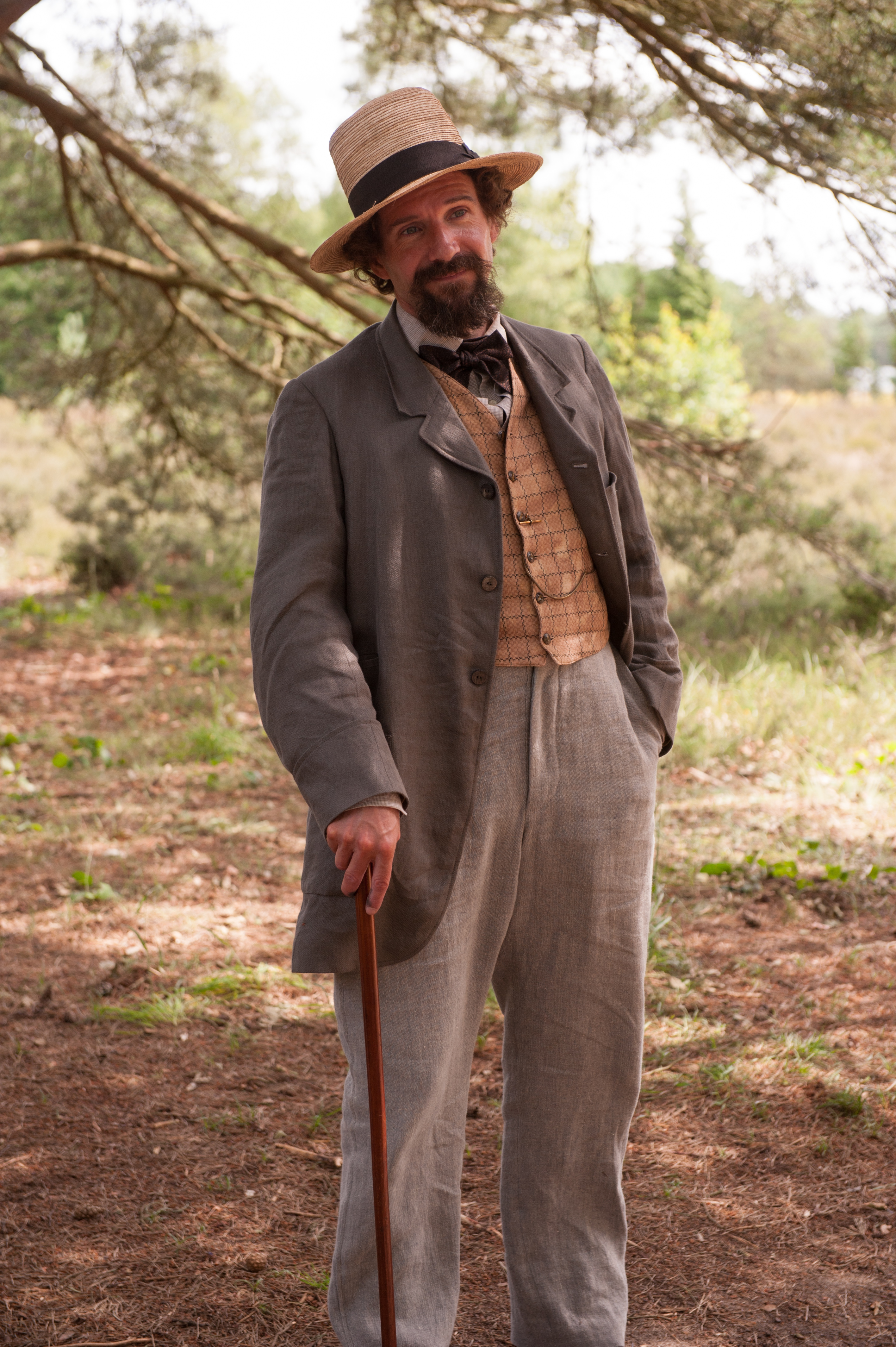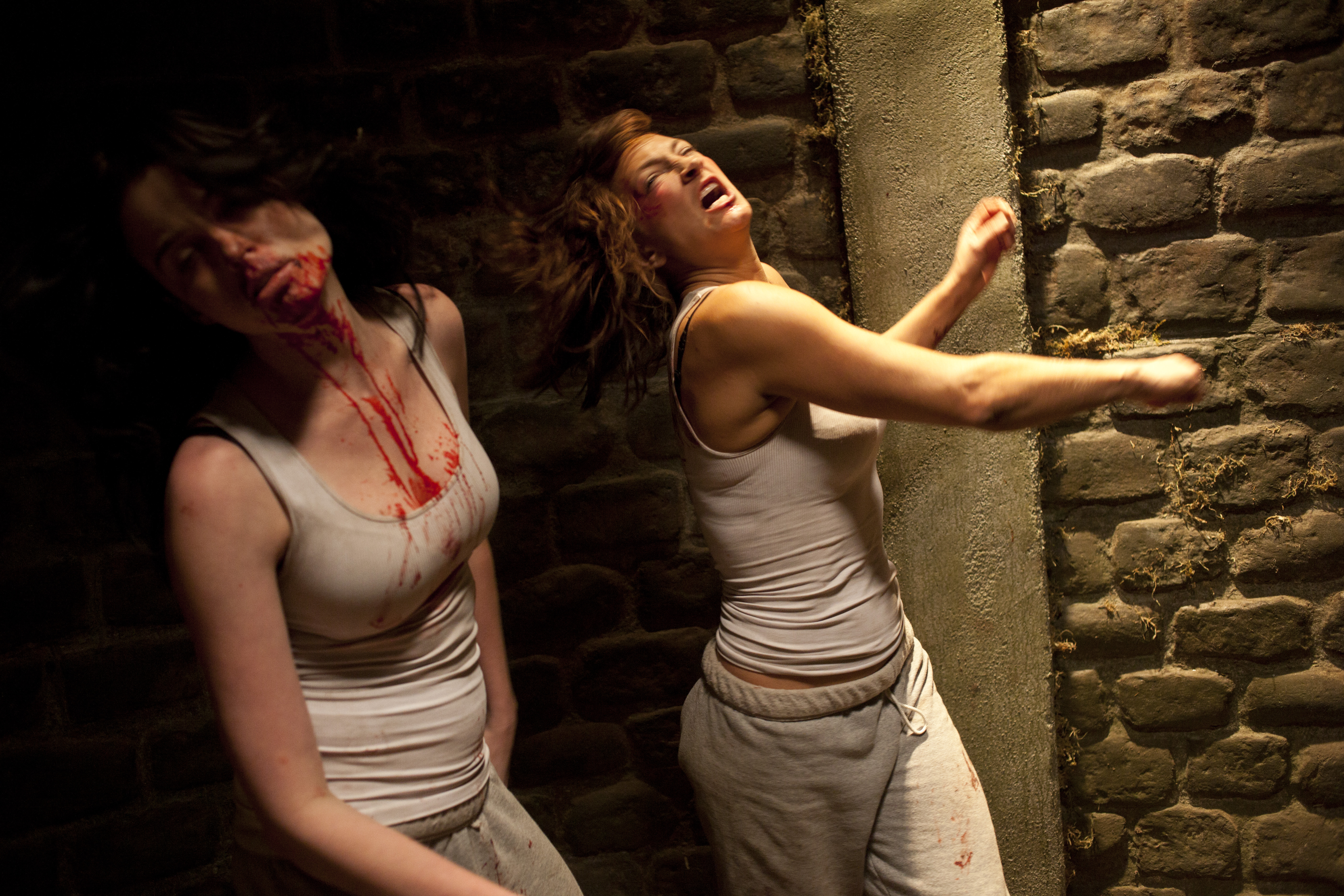Opening ThisWeek
American Promise
Opens Fri., Jan. 24 at Sundance Cinemas. Not rated. 135 minutes.
American Promise begins with serious intent and high expectations. The filmmakers, Joe Brewster and Michele Stephenson, set out to chronicle their young son Idris and his schoolmates over a dozen-year period—a process inspired by the remarkable British Up series and, presumably, Hoop Dreams. Only two children stuck with this project, however: Idris and his friend Seun Summers, first seen as they begin grade school at Manhattan’s upper-class Dalton School.
In the early stages, Brewster and Stephenson seem to steer the movie in a willed direction: What will be the challenges for two African-American boys at a predominantly white, high-achieving school? The Dalton officials seem utterly sincere in their desire to diversify the place, but the challenges are real. Some of them, however, don’t relate at all to race; both Idris and Seun have specific learning issues, for instance. After some years Seun can’t keep up with Dalton’s standards and opts for a Brooklyn public high school with a mostly black student body.
American Promise is often engrossing in exploring the anxieties and dreams of two young black males as they navigate life, and Idris and Seun are distinctive people. But our view of them is complicated by the camera’s sometimes intrusive presence, and by the uncomfortable fact that Idris is the son of the film’s directors. Brewster and Stephenson, who frequently appear on camera, push Idris with what appears to be around-the-clock studying. They’re driven people who can’t understand why their oldest son isn’t ambitious in the same way. That makes it hard to decipher the film’s own perspective. What I see are two overbearing parents who are not only projecting their own ambitions onto their kid, but plunking down a camera to capture disappointing or embarrassing moments.
Some questions: Did the presence of the lens more significantly change Idris’ behavior or that of the filmmakers themselves? Might the parents have been a touch warmer and less schoolmarmy if they hadn’t been living their lives for a camera to record? Are they trying to document life as it happens or prove a point? The social portrait of American youth is overshadowed by those troubling aspects. Whatever interesting issues this movie might bring up, the lingering impression is that first and foremost, it might not be a great idea to subject your own child to the distorting lens of the documentary camera. Robert Horton
The Best Offer
Runs Fri., Jan. 24–Thurs., Jan. 30 at SIFF Film Center. Rated R. 131 minutes.
There have been better Oscar winners in the foreign-language-film category, but few as beloved as Giuseppe Tornatore’s Cinema Paradiso (1988). In the quarter-century since he made that heartwarmer, Tornatore has followed with a hodgepodge of projects, many of them touched with a sentimental or precious spirit—a middling record, which is why it’s intriguing to see him turn to a genre picture. Yes, The Best Offer is a character study, but it also has a built-in suspense mechanism that leads the writer/director away from his more pretentious tendencies.
Plus, any movie that puts Geoffrey Rush in the central role deserves attention. Rush plays the feared auction-house owner and connoisseur Virgil Oldman, who glides through the high-art universe, gavel in hand. (Where exactly this universe is centered is vague; the setting is an unnamed European city where everybody speaks English as common language.) The epitome of class, he’s actually running a tidy scam in plain sight, collecting expensive paintings by underestimating their true worth and using a plant (Donald Sutherland) as high bidder. Virgil, a lifelong bachelor, is drawn into a mysterious relationship with a wealthy young client (Sylvia Hoeks) who needs to sell the treasures from her rambling mansion. She refuses to let herself be seen, but needs Virgil to appraise her belongings, and they carry on an oddly tender communication from opposite sides of a hidden door. Occasionally he lingers around the place, hidden behind a statue, just to catch a glimpse of her; a lifetime of looking cannot be denied. Meanwhile he surreptitiously gathers odd steampunk gizmos from her basement, and conspires with a local tinkerer (Jim Sturgess, from Across the Universe) to assemble the pieces of what appears to be a pre-20th-century robot.
Tornatore doesn’t exactly have a light touch (in case we might not fully understand Virgil’s aversion to human intimacy, the character always wears gloves), so the average viewer will see big plot developments hatching from very early on. Nevertheless, the movie’s a pleasant enough collision of arty eye-candy (pretty locations, secret rooms lined with painted masterpieces) and trash, all goosed along by a cheeky musical score by octogenarian Ennio Morricone. The storyline hangs on a series of unlikely events, but Tornatore’s sheer commitment to the material (every scene is visibly fussed over) makes even random interiors dense with detail. And Rush, an elegant actor who always seems game to mess himself up, gets to play around in his catlike way. He justifies this overdone but enjoyable exercise in fluff. Robert Horton
G.B.F.
Opens Fri., Jan. 24 at Pacific Place. Rated R. 92 minutes.
One of the truly underrated acting performances of recent years—in fact it was barely rated at all—came from Evanna Lynch, astonishing as Luna Lovegood in the Harry Potter movies. I don’t recall ever seeing a screen presence like hers: luminescent, ethereal, played with the most delicate and serene pathos; I am not kidding when I say I think she got screwed out of a Best Supporting Actress Oscar nomination. And now I’m more convinced than ever that Lynch has some kind of greatness in her, because she’s nothing like that as an utterly conventional mean girl in G.B.F. (She apparently needs help picking projects, though.)
The film’s premise is cute: Discovering that gay boys are the latest trendy accessory, North Gateway High’s three queen bees—rich bitch Fawcett (Sasha Pieterse), perky Mormon ’Shley (Andrea Bowen), and Caprice (Xosha Roquemore), who rules the drama department—vie for the friendship of newly out Tanner (Michael J. Willett, with the looks of a baby Matt LeBlanc but not nearly the intellectual gravitas). Also pulling him in different directions are Soledad (Joanna Levesque), who’s anxious to start a Gay-Straight Alliance but needs, you know, an actual gay; and his own nerd clique, including the flaming Brent (Paul Iacono), miffed at his former sidekick’s new social prominence.
Even by dumb-teen-comedy standards, though, the ratio of jokes that land to those that fall flat is not what it should be. A few troupers show the kids how it’s done, though: Natasha Lyonne’s camp expertise (Die Mommie Die!, But I’m a Cheerleader) gets her a few effortless laughs, and Megan Mullally, as Brent’s ostentatiously supportive mom, contributes one hilarious moment with her deadpan narration of Brokeback Mountain’s tent scene (“Oh, my . . . I guess necessity is the mother of invention”). G.B.F. has its charms, but if Mullally can’t save a gay comedy, it can’t be saved. Gavin Borchert
The Invisible Woman
Opens Fri., Jan. 24 at Varsity and Lincoln Square. Rated R. 111 minutes.
There’s been a recent vogue to make superheroes out of English literary figures: We’ve had a brawny, brawling Sherlock Holmes (Robert Downey Jr.), a lethal, gadget-happy Van Helsing (Hugh Jackman), and even Jane Austen as a zombie fighter (not yet filmed, though it probably will be . . . I nominate Emily Blunt for the role). For that reason, it’s a relief to find Ralph Fiennes’ Charles Dickens essentially as we imagine him: vital, human, prolific, charming, flawed, driven to succeed. Any writer who’s ever struggled to meet a petty deadline can only marvel at his stamina and imperviousness to pressure. As the most famous writer of the 19th century, the entire world depended on each new installment of his serialized novels.
But then there was the 19th-century problem of sex. Dickens both had too much of it—producing 10 children with his wife Catherine—and too little, as Claire Tomalin explored in her 1990 book The Invisible Woman. That woman was Nelly Ternan (Felicity Jones), Dickens’ much younger mistress for the last dozen years of his life (1812–1870). Does it sound tawdry and inappropriate that Dickens basically pays Nelly’s shrewd actress mother (Kristin Scott Thomas) for this arrangement? There’s something icky about it—one thinks of Frank Sinatra and Mia Farrow, or of Woody Allen and Soon-Yi Previn. An older, powerful man can too easily convince himself that love, not economic necessity, brings a vulnerable teenager to his bedroom at night.
There are many pleasures to The Invisible Woman, and they chiefly have to do with the man and his Victorian milieu. As both director and star, Fiennes loves the scenes of Dickens’ public readings to concert halls full of rapt fans, hanging on his every word. The script, however, by Abi Morgan (Shame, The Iron Lady) isn’t very quotable or nuanced, mainly toggling between Nelly’s 1885 present and scenes from her past. (She has to heal, you see, prompted by a sympathetic parson.) Because Ternan as an historical figure left little in the way of a public record, her character feels vague and conjectural; Jones and the filmmakers haven’t got an angle on her. Nelly’s just a fan, a confidante, a lover (it takes over an hour to get to the sex), and finally a scandal to be hidden.
And hide she does. The movie’s basic problem is that it’s bound to end in stalemate and shadow. Since Dickens squelched the story in his day with a warning letter to the Times, the invisible woman shall remain invisible. She’s never going to have her moment on TMZ like Rielle Hunter. Yet the psychology of modern filmmaking dictates that Nelly must find closure in her later life. You may not believe it; but if nothing else, the film will move you toward the bookcase, or Kindle—wherever your copy of Great Expectations is kept. Brian Miller
Raze
Runs Fri., Jan. 24–Thurs., Jan. 30 at Grand Illusion. Not rated. 87 minutes.
Ordinarily, one would expect that a cult-movie blend of Game of Death and Kafka featuring women in a tournament of hand-to-hand fighting would be an automatic winner. Well, some people would expect that. Alas, Raze falls short of exploitation expectations, delivering its bucket of blood without revving up the necessary drive-in craziness.
The women in question have been kidnapped and are being held in a mysterious set of windowless chambers. Their captors make it known that if the women fail to fight to the death when they are paired in individual combat, their loved ones at home will be hurt. (After a round robin, one winner will survive and, supposedly, be released.) Between battles, the women exchange dialogue about outsmarting this system, but director Josh C. Waller is more interested in plunging straight into the bare-knuckle action than in complicating his concept. Our rooting interest lies with Sabrina (Zoe Bell), if only because she genuinely regrets the business of killing off her opponents. The same can’t be said for the Richard Sherman of the group, big-talking Phoebe (Rebecca Marshall), a bombshell who professes to enjoy the nastier parts of the dilemma.
They, and we, get a few glimpses of the overlords of this most dangerous game. They’re played by Doug Jones, the spindly mime usually seen beneath alien makeup or replaced by computer-generated creatures (he was Abe Sapien in the Hellboy movies), and Twin Peaks veteran Sherilyn Fenn. Bell makes a grim protagonist; the strapping Aussie is a longtime stuntwoman and the star of Quentin Tarantino’s Death Proof, part of the 2008 Grindhouse double-bill. Her blue-collar authenticity goes partway toward selling this unadorned situation, but the action gets repetitive and numbing pretty early on. A possible inspiration, the 2005 Georgian film 13 Tzameti, had a sinister network of cross-purposes and dark social comment to keep it aloft as it explored a similarly violent nightmare. Raze doesn’t come near that level of unease, and can’t even gin up any big surprises (save for one casting cameo that you might very easily not catch, given the muddy look of everything). Sorry, but this would not pass muster on the second half of a 1970s drive-in double-bill, which really ought to be the litmus test here. Robert Horton
Tokyo Waka
Runs Fri., Jan. 24–Thurs., Jan. 30 at Grand Illusion. Not rated. 63 minutes.
Seattle is unusually well-provided with both crows and crow experts. The UW’s John Marzluff is a national expert in the corvid field (and, with illustrator Tony Angell, co-author of In the Company of Crows and Ravens). Local author Lyanda Lynn Haupt penned an untutored backyard appreciation in her more recent Crow Planet. And given all the YouTube videos starring those brainy, feathered beasts, it should be expected that there are now crow documentaries.
John Haptas and Kristine Samuelson visited Tokyo for more than five months to film interactions between man and crow, and their observations are charming if not terribly novel. Yes, crows have adapted easily to our urban environment of fast-food scraps and easily punctured trash bags. Yes, they deposit walnuts at traffic intersections for our tires to crack. And yes, they create tools to help feed themselves. We in Seattle know that, because we’re surrounded by clever crows of a different family. (The Japanese birds are jungle crows, with a beefier beak—almost like a raven’s—and more pronounced brow; they’re less sleek and a little more brutish than our Northwest flocks.)
“They can eat anything,” says one admiring ornithologist. A Shinto priest sees in the crows’ consumption of Tokyo’s bagged garbage “the ruins of desire.” Yet that city has waged war on these well-adapted scavengers, and we watch them being smothered to death in plastic bags (a cruel yet fitting irony). Tokyo Waka is nowhere near so winning or thorough as The Wild Parrots of Telegraph Hill, but there are some nice grace notes—like nests made out of plastic hangers. If the Japanese can’t manage their trash and recycling properly, crows are doing it for them. (Samuelson will conduct a Q&A following the 7 p.m. Friday screening.) Brian Miller
E
film@seattleweekly.com








